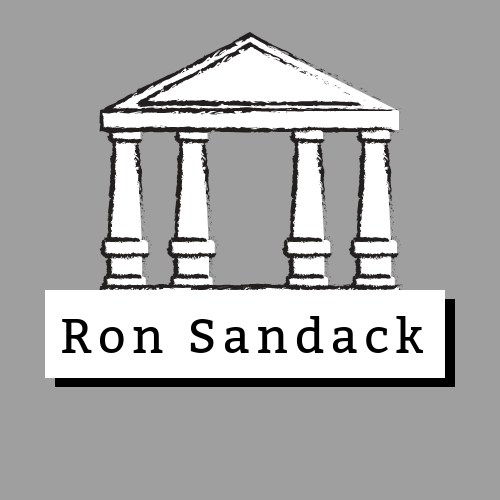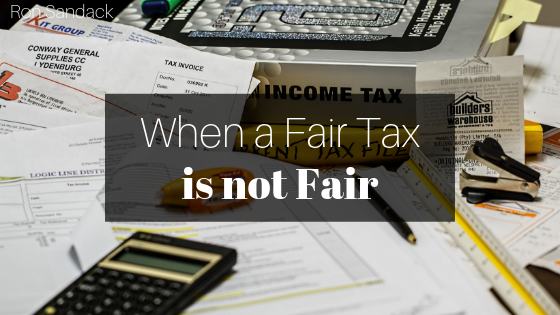You have probably heard and even said that something was “not fair”. And furthermore, you have probably told someone that “life isn’t fair”. We often champion this idea of fairness when we want a better outcome. Illinois does the same. The new Governor and members of his party tout the idea of a “fair tax” when in many ways it could be regarded as the opposite. We shouldn’t be surprised that our lawmakers are unable to define the word “fair” when they are unable to define the word “balanced”.
But how unfair is this so-called Fair Tax proposal after all? Let’s break it down.
Constitution Degradation
Making changes to a state constitution is serious business and not to be taken lightly. Our constitution is generally seen as guaranteed protections for the citizens and is not intended to be easily tampered with; unless there are clear and convincing reasons to make changes. But that is not going to be the case here, as the “Fair Tax” requires the amending of the income tax stipulation in the Illinois constitution for far less than compelling reasons. Our constitution now calls for a “flat tax” meaning everyone pays the same rate (currently 4.95%) of their respective incomes. Some suggest that keeping the rate flat makes raising taxes harder as it hits middle and lower income people just as it affects those with higher comes, where raising taxes may be easier and more reflexive. Changing the state’s constitution to add progressivity may reduce the natural urge to reflexively or quickly raise taxes — becaue with a “fair tax” only on one segment of Illinois’ citizens. Changing to a graduated income tax may initiate some class warfare with some easily foreseeable outcomes– the “rich” who are targeted here are the ones able to leave Illinois; which would defeat the whole purpose of going to a progressive — or “Fair” — tax in the first place. Illinois’ current — and constitutionally mandated — flat tax has been a beacon of hope when almost all other taxes around us have been skyrocketing.
Always On Top
Illinois is infamously a forerunner in the “highest” categories of our nation. We most often sit within the top five (5) of the highest cell phone tax, the highest pension deficit, the highest gas tax, nearly the highest property taxes, we lead in out-migration, and so forth. With the governor’s current proposal, we are on course to chart another “highest” with one of the highest income taxes in the country. In addition to raising taxes on citizens, this jump would especially affect the business community in Illinois, with proposed tax rates that border on confiscatory, and will undoubtedly be seen by many as hostile and anti-business.
Another Invitation to Leave?
We all know that people are leaving the Land of Lincoln, and they are leaving fast. What is sometimes underreported, is the number of businesses that are relocating as well. The implementation of the types of rates that this “Fair Tax” would introduce would only cause the out-migration to increase. States surrounding ours are doing something unthinkable; lowering corporate tax rates and inviting businesses by creating a healthy small business economy. And they are set to gain some of our local businesses (and patrons) if this sees the light of day. This is especially true in and around Illinois’ several borders where people and businesses can easily see the benefits of our surrounding states, including business-welcoming policies and lower taxes and cost of living opportunities. I sometimes think our state’s leaders forget people and businesses have choices and by continuing to raise taxes Illinois’ policies reduce the hassle of moving elsewhere.
I Do or I Don’t
Another sticker in the proposed “Fair Tax” proposal is what some are calling a marriage penalty. This penalty would cause joint-filers to owe more overall than separate filers. Since their income would be considered as one income, the graduated tax rate would apply and dual-earners would end up with a higher tax burden than before. Not very fair for married people, right?
Bait & Switch
The so-called “Fair Tax” would not be a real Illinois initiative without some good old fashioned political chicanery, now would it? In this instance the folks in charge of Springfield have outdone themselves. For years the Democrats in charge of the General Assembly have ignored calls for property tax reform — despite Illinois having the second highest property taxes in the nation! Ask any longtime homeowner what their property taxes have done over the last 10 or so years and you’ll hear a familiar refrain: They’ve at least doubled! The fact is, real estate taxes are out of control and for may years Illinois Republicans have sought to reduce or, at least, freeze property taxes. But now that Gov. Pritzker and the Democrats want to raise taxes in the form of a progressive income tax via a constitutional change — you know, implement a “Fair Tax” — they need some seemingly good talking points to go along with there graduated tax scheme and buttress their tax raising mission … Voila, a property tax freeze! That’s right, out of nowhere suddenly Democratic lawmakers want to provide citizens with a property tax freeze, or so they say. But like anything having to do with Illinois politics, the devil is in the details and even a cursory review of this advertised property tax freeze reveals it is no such thing– rather another political sham to fool people. The reality is, this “freeze” is only for the school funding portion of property taxes, does not include pension obligations, and will be for naught if the state does not fully fund required categories as well as meet its new education funding formula … which the state cannot do in a sustained fashion (because there’s no money!). So what exactly is this “property tax freeze?” It’s an advertising scam, a flimsy and disingenuous political talking point to make the proposed “Fair Tax” constitutional change seem better. But it is worth remembering, only the “Fair Tax” will be on the ballot for a constitutional change. The illusory property tax “freeze” will not. And you can bet it will only be around as a concept until the moment after the vote on the “Fair Tax.”
Conclusion
Perhaps fairness is always subjective and in the eye of the beholder. But maybe we should reimagine the way that we propose our policies here in Illinois. When we propose something as “fair”, that should not be for or against one group of people. And it isn’t “fair” to continually burden the taxpayer for the shortcomings of its government. Illinois needs to find a better way to address its out-of-control spending, rather than imposing unfair taxes on their constituents … yet again.

